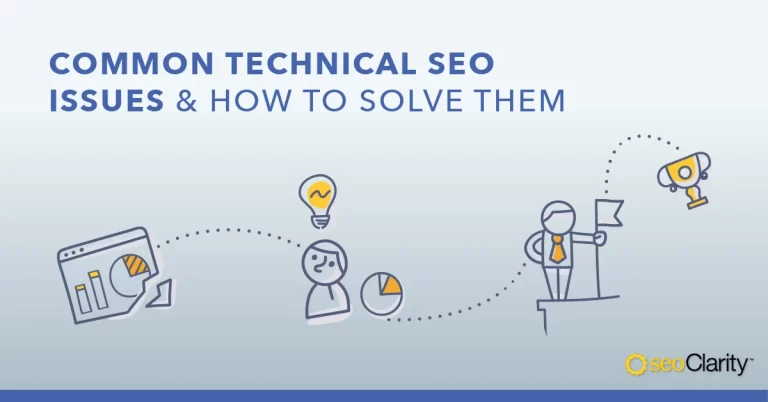In the ever-evolving world of digital marketing, Technical SEO stands as a cornerstone for achieving online visibility and success. Technical SEO refers to the process of optimizing the structure of a website so that search engines can crawl and index it effectively. It’s a crucial part of a broader SEO strategy, necessary for any website aiming to improve its search engine rankings. This article Seogroupbuy will help delves into various tools and strategies to diagnose and rectify common technical SEO issues, specifically focusing on the powerhouse of search, Google.

Understanding the Importance of Technical SEO
Before diving into the tools, it’s crucial to understand why Technical SEO is essential. Search engines like Google aim to provide users with the most relevant and useful content. If a website has technical issues, it can hinder search engines from understanding and ranking the content correctly, regardless of its quality. Technical SEO ensures that a website meets the technical requirements of modern search engines, improving organic rankings.
Tools for Diagnosing Technical SEO Issues
- Google Search Console: This free tool provided by Google is indispensable for any SEO professional. It helps in monitoring, maintaining, and troubleshooting your site’s presence in Google Search results. Features such as the Coverage report and the URL Inspection tool are vital for finding and fixing crawl errors, understanding how Google views your page, and checking if Google can access your content.
- Screaming Frog SEO Spider: This website crawler is excellent for auditing and analyzing a website from an SEO perspective. It can detect issues like broken links, redirect chains, duplicate content, missing alt tags, and much more. Its ability to crawl both small and large websites makes it a versatile tool for technical SEO audits.
- Google PageSpeed Insights: Page speed is a critical factor for both SEO and user experience. This tool analyzes the content of a web page and then generates suggestions to make that page faster. Improving page speed can have a significant impact on your site’s performance in search results.
- GTmetrix: Similar to Google PageSpeed Insights, GTmetrix provides detailed reports on a website’s performance. It gives actionable recommendations on how to improve website speed and overall user experience.
- Moz Pro Site Crawl: This tool helps in identifying issues like broken redirects, missing title tags, and large image files that could be slowing down your site. Moz Pro’s reports and recommendations are user-friendly, making it easier for non-technical individuals to understand and address the issues.
Group Buy SEO Tools sells a lot of SEO tools at cheap prices, with the best quality and most stable products compared to all other suppliers.
Combo package of 100 SEO tools for only $15/month. All tools are premium paid plans
Common Technical SEO Issues and How to Fix Them
- Slow Page Load Time: Use Google PageSpeed Insights or GTmetrix to identify what’s slowing down your site. Solutions may include optimizing images, leveraging browser caching, and reducing server response time.
- Crawl Errors: Google Search Console can identify crawl errors like 404 pages. Fixing these involves either restoring the deleted pages or redirecting the URLs to relevant pages.
- Duplicate Content: Tools like Screaming Frog can help identify duplicate content. Address this by setting up 301 redirects, using the canonical tag, or improving the content to be unique.
- Missing Alt Tags and Broken Images: Screaming Frog can detect missing alt tags and broken images. Alt tags should be added to all images, using relevant keywords where appropriate. Broken images should be fixed by either updating the image source or removing the image.
- Mobile Usability Issues: With mobile-first indexing, it’s crucial to have a mobile-friendly site. Google Search Console’s mobile usability report can identify issues, which can then be fixed by using responsive design and ensuring that all content is accessible on mobile devices.
Advanced Technical SEO Tips
- Structured Data Markup: Use Google’s Structured Data Testing Tool to ensure your website’s structured data is correctly implemented. This helps Google understand the content of your site better and can lead to rich snippets in search results.
- XML Sitemaps: Ensure your XML sitemap is updated and submitted to Google via the Google Search Console. This aids Google in efficiently crawling your website.
- Secure Socket Layer (SSL): SSL is a must for any website. Google gives preference to secure websites. Make sure your site is accessed via HTTPS.
- International SEO: If your website targets users in different countries and languages, use hreflang tags to tell Google which version of a site to show in different locations.
Continuous Learning and Adaptation
The landscape of SEO and digital marketing is constantly changing. What works today may not be effective tomorrow. Therefore, continuous learning and adaptation are key. Stay updated with Google’s guidelines, algorithm updates, and industry best practices. Regularly auditing and updating your website as per the latest SEO trends is crucial.
Conclusion
In conclusion, technical SEO is a vital part of any SEO strategy, particularly for visibility in Google’s search results. By utilizing the right tools and staying informed on best practices, you can diagnose and fix issues that may hinder your website’s performance. Remember, technical SEO is not a one-time task but an ongoing process. Continuous monitoring, testing, and optimization are essential for maintaining and improving your site’s search engine ranking.

